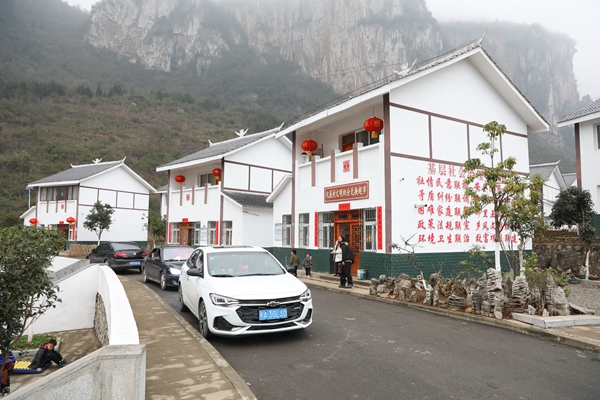

He says writers and artists can also participate in the construction of rural civilization by studying local culture and protecting villages' history, especially that of the precious ancient dwellings and culture.
President Xi Jinping visited Huawu village, Xinren Miao township in Qianxi county, Bijie city, Southwest China's Guizhou province, on Feb 3, about a week ahead of Spring Festival.
He went to the once-poor community and made a house call on a villager, Zhao Yuxue. He checked the family's living conditions and joined them to make huangba, a local traditional snack for festivals made from sticky rice and soybean flour wrapped in reed leaves.
Lu Lin, secretary of the county committee, says in the past couple of years, they have been repairing, rebuilding and constructing old towns, villages, streets and buildings to inherit local characteristic culture.
"Eighteen ethnic groups, including Han, Yi and Miao, live in Qianxi, which means the place has rich ethnic customs, and we have 1,158 village tourism resources, so we combine the construction of beautiful village with the protection of rural culture," Lu says.
Besides promoting a batch of tourism sites, the village also protects and develops local cultural and creative products as well as ethnic dances and performances, he says.
According to Lu, there are three traditional villages in Qianxi that are worthy of protecting, including Huawu village and inside those villages, there are plenty of folk-style houses to be protected and repaired.
"We sincerely invite art workers to visit Qianxi to feel the changes after poverty alleviation. We hope they can draw Qianxi into paintings, record Qianxi with their cameras and tell the stories of Qianxi in their own words," Lu says.